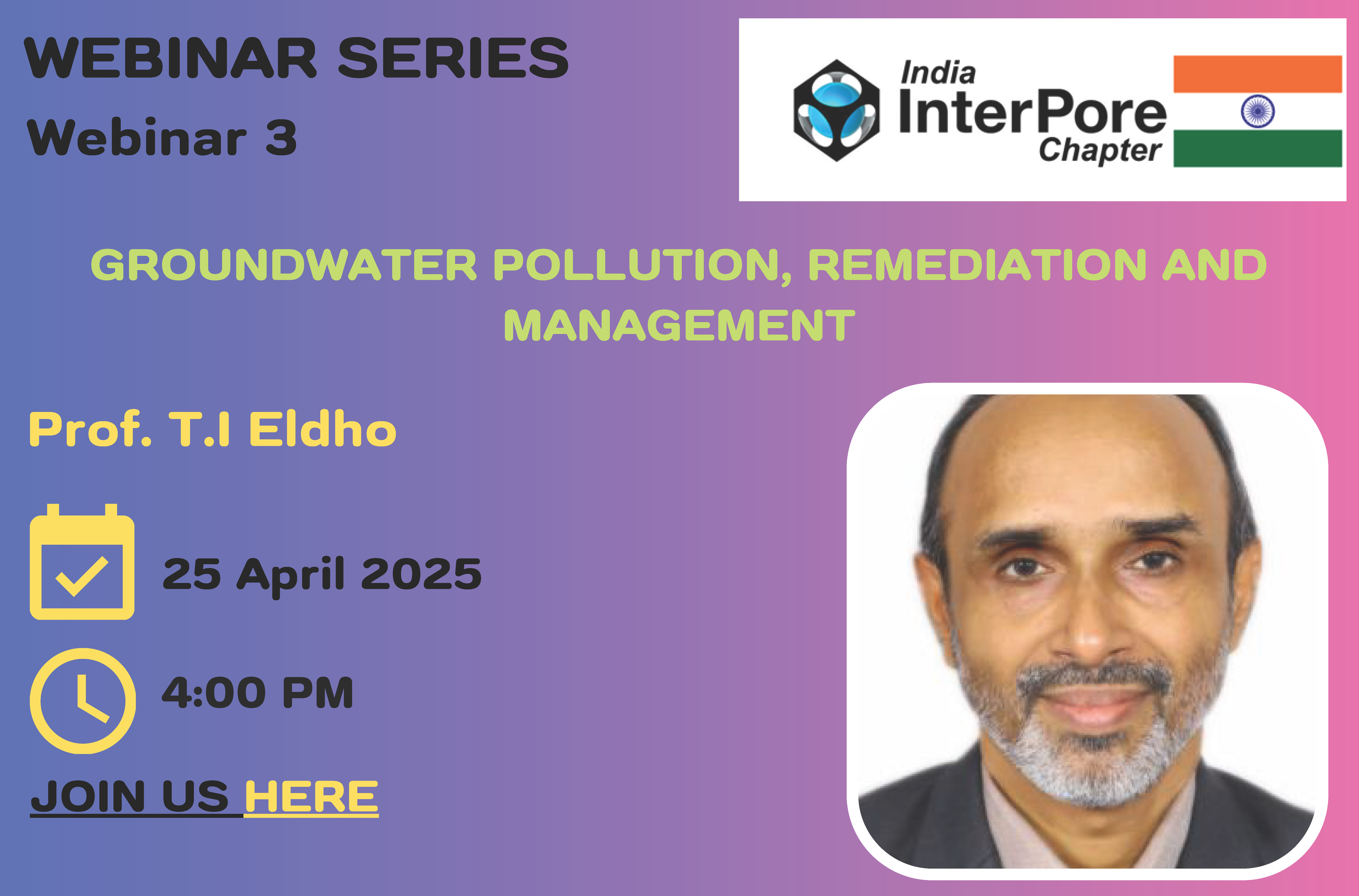Webinar Series: Groundwater Pollution, Remediation and Management
Meeting Link: http://meet.google.com/asv-whvm-koz
Event Flyer can be downloaded here
Groundwater is the major source of drinking water. However, groundwater pollution is a major problem in many parts of the world, including India, and need urgent attention for remediation. Groundwater is being polluted due to several industrial, agricultural and other manmade sources over the past few decades. There, mediation of a contaminated site is a major challenge. Two commonly used techniques for groundwater remediation are: pump and treat and bioremediation. Further, an effective groundwater remediation study requires the assessment of location of contaminant plume and its movement of the plume with respect to space and time. Thus, simulation optimization tools are essential for optimal designs. Generally, the groundwater flow and transport is analyzed using a simulation model, which is further linked with an optimization algorithm to identify the best management strategies with the considered objective and constraints. For most of the remedial designs, the simulation is carried out using numerical methods such as Finite Difference Method (FDM), Finite Element Method (FEM). Recently, mesh free methods such as radial point collocation methods (RPCM) and Mesh free Local Petrov Galerkin (MLPG) methods are developed for the simulation.
In this lecture, various issues of groundwater, pollution management, and remediation will be discussed. Further, the application of simulation optimization models for groundwater pollution management will be demonstrated. The numerical simulation models like finite element and mesh free methods will be demonstrated. For optimization, Particle Swarm optimization and other techniques are used. Results from the proposed model demonstrate the effectiveness of simulation optimization models for groundwater sustainable management design plans. From his coupled approach, a strategy can be obtained. It can help in identifying the critical variables hat limit the results. Alternative scenarios can be simulated and changes can be proposed accordingly. These studies help in evolving appropriate guidelines and control systems for end users.
About the Speaker: Dr Eldho is a Professor & Former Head and Chair of the Department of Civil Engineering, IIT Bombay. He has 30 years of experience in the areas of water resources and environmental engineering as a Scientist, Professor and Consultant. He works in the areas of Fluid Mechanics, Hydraulics, Coastal Hydrodynamics and Climate Change Impact on Water Resources, CFD, Groundwater Flow and Contaminant transport. Hahas guided 42 Ph.Ds., 12 Postdoctoral Fellows and 60 Master’s theses. He has published more than 550research papers in various International Journals and Conferences. He has developed and offered 25 courses and number of short term courses for college teachers and working professional, and developed two popular video courses on “Fluid Mechanics” and “Watershed Management”. Prof. Eldho serves as an Editor/ Associate Editor and Editorial Board Member and reviewer of a number of Indian and International Journals. Dr. Eldho has co-authored two popular textbooks “Finite Element Method with Applications in Engineering” and “Introduction to Advanced Fluid Dynamics and Fluvial Process”, one edited book “Hydro-Environmental Impact of Climate and Land Use Change on Watersheds for Sustainable Development”. He has also contributed 22 book chapters in various edited books. He has Google Scholar Citations of 6650 and h-index 42. Dr. Eldho was listed in World's Top 2% Researchers in Engineering Field for 2023 by Elsevier/ Scopus. He is recipient of many prestigious awards, including Eminent Water Resources Scientist, constituted by IWRS. He is a Fellow of ISH, IWWA, Institution of Engineers and IWRS.

